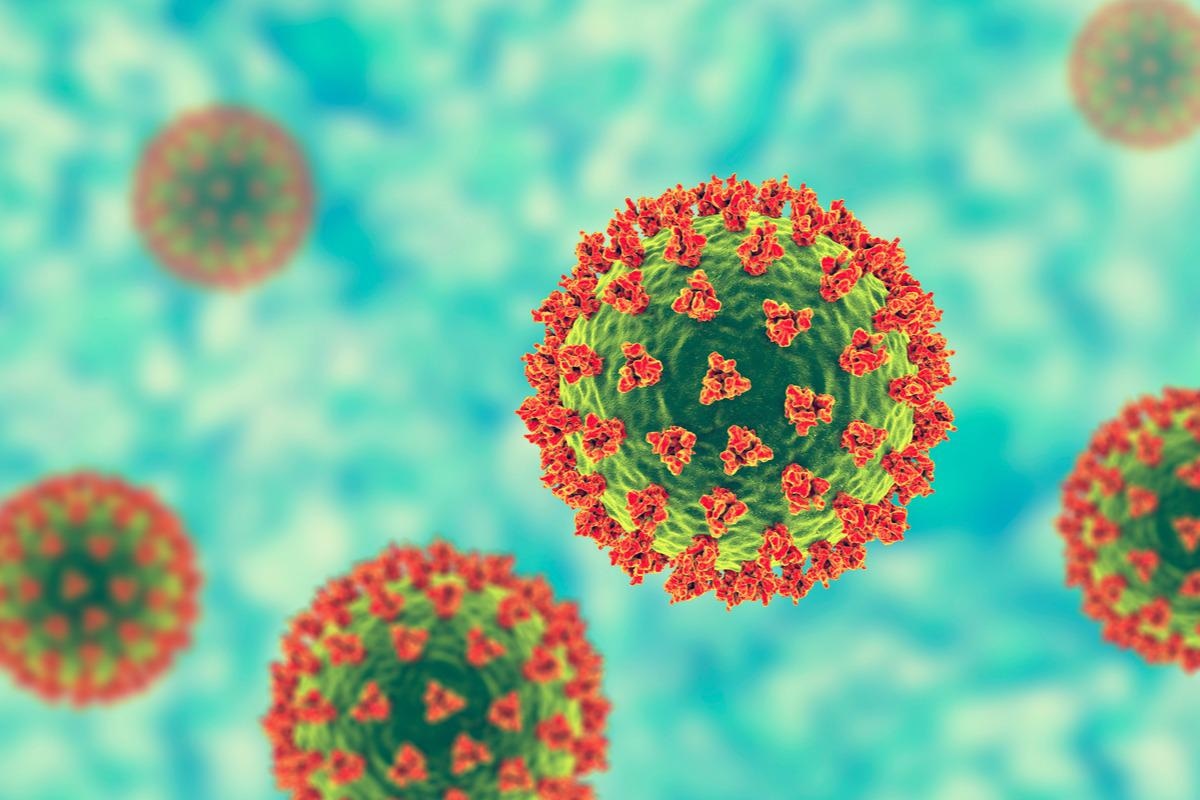A recent study posted to Preprints with The Lancet* investigated the protection provided by the primary severe acute respiratory syndrome coronavirus 2 (SARS-CoV-2) infection against reinfection.

Various studies have reported the natural immunity conferred by coronavirus disease 2019 (COVID-19) infections against reinfections. However, the emergence of new SARS-CoV-2 variants of concern (VOCs) and their impact on this immunity needs extensive research.
About the study
The present observational study assessed the overall effectiveness and longevity of protection provided by primary SARS-CoV-2 infections against reinfections in different age groups, particularly in the elderly population.
The team employed a cohort study design that analyzed routine data collected on an individual level across the Danish residents aged two years and above, with a minimum of one reverse transcription-polymerase chain reaction (RT-PCR) test result and no previous SARS-CoV-2 vaccination. Data regarding age, gender, vital status, and residential area were obtained.
Data related to SARS-CoV-2 tests, including all RT-PCR assays performed, were also acquired. Information was obtained on vaccinations, including the date and type of vaccine administered. Furthermore, the team obtained data on the COVID-19 manifestations, symptoms, and related hospitalizations. The authors defined COVID-19-related hospitalizations as any hospital admission that occurred two days before or 14 days after the PCR-diagnosed COVID-19.
Positive RT-PCR results found throughout the pandemic were confirmed with whole-genome sequencing (WGS) and/or an RT-PCR specific to SARS-CoV-2 variants. The study was divided into five distinct time intervals, each of which was dominated by a SARS-CoV-2 VOC: the SARS-CoV-2 wild-type variant was considered to be dominant between 1 February and 31 December 2020, Alpha VOC between 15 March to 30 June 2021, Delta VOC between 15 July to 15 November 2021, and Omicron VOC between 28 December 2021 to 31 January 2022.
Moreover, the team assessed the longevity of protection provided by previous COVID-19 infections against reinfections. The protection provided by a wild-type primary infection against the Alpha reinfection was examined by limiting the study population to those who tested positive in the wild-type period. This test was repeated to compare the protection conferred by the other variants.
Results
The study results showed that in the SARS-CoV-2 Alpha period, a total of 134,006 infection cases were found without COVID-19 history, while only 722 cases had been previously infected. Overall, the estimated protection against reinfection was 83.5% among COVID-19-recovered individuals. In specific age groups, this protection was similar in the younger groups while 72% protection was predicted in individuals aged over 65 years.
In individuals without COVID-19 history, 56.9% experienced infection-related symptoms, while 41.9% of the individuals had previously tested positive for COVID-19-reported symptoms. Notably, 50% of the asymptomatic first-time SARS-COV-2 cases were more likely to be reinfected than the symptomatic individuals.
During the Alpha period, the study found that 86.6% and 83.1% predicted protection was conferred against reinfection for four to six and seven to nine months of primary infection, respectively. After this period, natural immunity appeared to wane before slightly rebounding.
The team observed that individuals with a history of infection were less likely to be reinfected in the Delta period. The highest level of protection of 93% was found in individuals who had been primarily infected three to six months before the reinfection compared to the 71.3% protection in individuals who had an infection over a year before. Furthermore, a history of SARS-CoV-2 infection also provided 91.3% protection to individuals against related hospitalizations and infection severity.
As compared to the SARS-CoV-2 wild-type strain or Alpha or Delta VOC reinfections, previous infections did not provide significant protection against Omicron infections. Approximately 43% of individuals who were previously infected within three to six months since the dominance of the Omicron VOC were less likely to be reinfected with Omicron than the uninfected. This protection was found to wane over time to 22.2% after six months. Also, prior infection was less protective against hospitalization in the Omicron period.
Conclusion
The study findings showed that natural SARS-CoV-2 infection-induced protection levels were similar to those conferred by COVID-19 vaccines with respect to reinfections, disease severity, as well as related hospitalizations. However, this protection declined against the novel SARS-CoV-2 variants, with the lowest protection observed against the Omicron VOC. This implied that waning protection was more a result of microbial evolution than reduced protection by natural infection.
*Important notice
Preprints with The Lancet publishes preliminary scientific reports that are not peer-reviewed and, therefore, should not be regarded as conclusive, guide clinical practice/health-related behavior, or treated as established information.
- Michlmayr, D. et al. (2022) "Observed Protection Against SARS-CoV-2 Reinfection Following a Primary Infection: A Danish Cohort Study Using Two Years of Nationwide PCR-Test Data", SSRN Electronic Journal. doi: 10.2139/ssrn.4054807. https://papers.ssrn.com/sol3/papers.cfm?abstract_id=4054807
Posted in: Medical Science News | Medical Research News | Disease/Infection News
Tags: Coronavirus, Coronavirus Disease COVID-19, covid-19, Evolution, Genome, Hospital, immunity, Omicron, Pandemic, Polymerase, Polymerase Chain Reaction, Research, Respiratory, SARS, SARS-CoV-2, Severe Acute Respiratory, Severe Acute Respiratory Syndrome, Syndrome, Transcription, Vaccine

Written by
Bhavana Kunkalikar
Bhavana Kunkalikar is a medical writer based in Goa, India. Her academic background is in Pharmaceutical sciences and she holds a Bachelor's degree in Pharmacy. Her educational background allowed her to foster an interest in anatomical and physiological sciences. Her college project work based on ‘The manifestations and causes of sickle cell anemia’ formed the stepping stone to a life-long fascination with human pathophysiology.
Source: Read Full Article